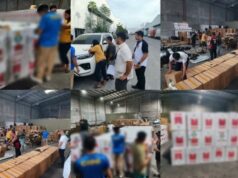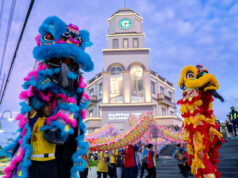CITY OF SAN FERNANDO – The Technical Education and Skills Development Authority (TESDA) and Coca-Cola Philippines will team up with several local government units and women’s organizations in Northern and Central Luzon to train over 10,000 women to become productive “sari-sari” owners.
Coke North Luzon chief Gary Emmanuel Carandang said in an interview that TESDA and Coke recently signed a memorandum of agreement with several stakeholders to partner in the Sari-Sari Store Training and Access to Resources (S3TAR) project.
“S3TAR will provide beneficiaries training, access to financial support, access to merchandising and store assets, and social development interventions for a period of three years, and on its fourth year, we will conduct an impact monitoring and assessment based on the set program objectives,” he said.
Carandang said “Coca-Cola recognizes the significant role of women as potential engines of economic and community development.
In Central Luzon, we have targeted the provinces of Nueva Ecija, Pampanga, Tarlac, and Bulacan where we have vowed to train 4,000 women micro-entrepreneurs to further develop their skills in business through this program.”
“We aim to train around 100,000 women across the archipelago by 2020,” he added.
TESDA International Development Unit Executive Director Ernesto Beltran said, “We will be providing basic entrepreneurship and gender sensitivity training. We will assist the selected sari-sari store owners throughout their schooling and we will make sure that each will succeed.”
Tarlac Gov. Victor Yap who graced the MOA signing. He noted that “this public-private partnership plays a major development in the economy that transforms the reliability of women in prospering business.”
“This undertaking also contributes to our nation’s attainment of the United Nations Millennium Development Goals by alleviating poverty and uplifting the lives of our people,” Yap added.
This, even as Soroptomist International of Women Cabanatuan, Nueva Ecija president Esther Arimbuyutan said, “S3TAR program will gain women economic independence, thus strengthening their entrepreneurship skills and abilities.”
Apart from Northern and Central Luzon, other areas were the S3TAR will be implemented include Metro Manila, Misamis Oriental, and the cities of Bacolod, Davao, Puerto Princesa and Cebu.
Records from the National Anti-Poverty Commission have indicated that about 37 million Filipinos are living below the poverty line with the women sector comprising a significant portion of 34.9 percent or 13 million.
No less than 8,000 women are sari-sari store owners in the country, the statistics said.




